Kenya Carbon Markets Week
25th - 27th March 2024: NCN and our members had a busy carbon markets week delving into several carbon markets events. We kicked off with a Carbon Markets Clinic at Strathmore University and an evening Oxford-style debate in partnership with the World Resources Institute on whether "Carbon Markets present a greater opportunity than threat for sustainable development in Kenya."

This was followed by the Kenya Carbon Markets Conference, which saw more than 20 NCN members up on stage discussing their work and featuring their projects. NCN hosted a networking reception for conference attendees, where we announced the upcoming launch of the Carbon Markets Association of Kenya (CAMAK).
Carbon Markets Clinic and Debate:
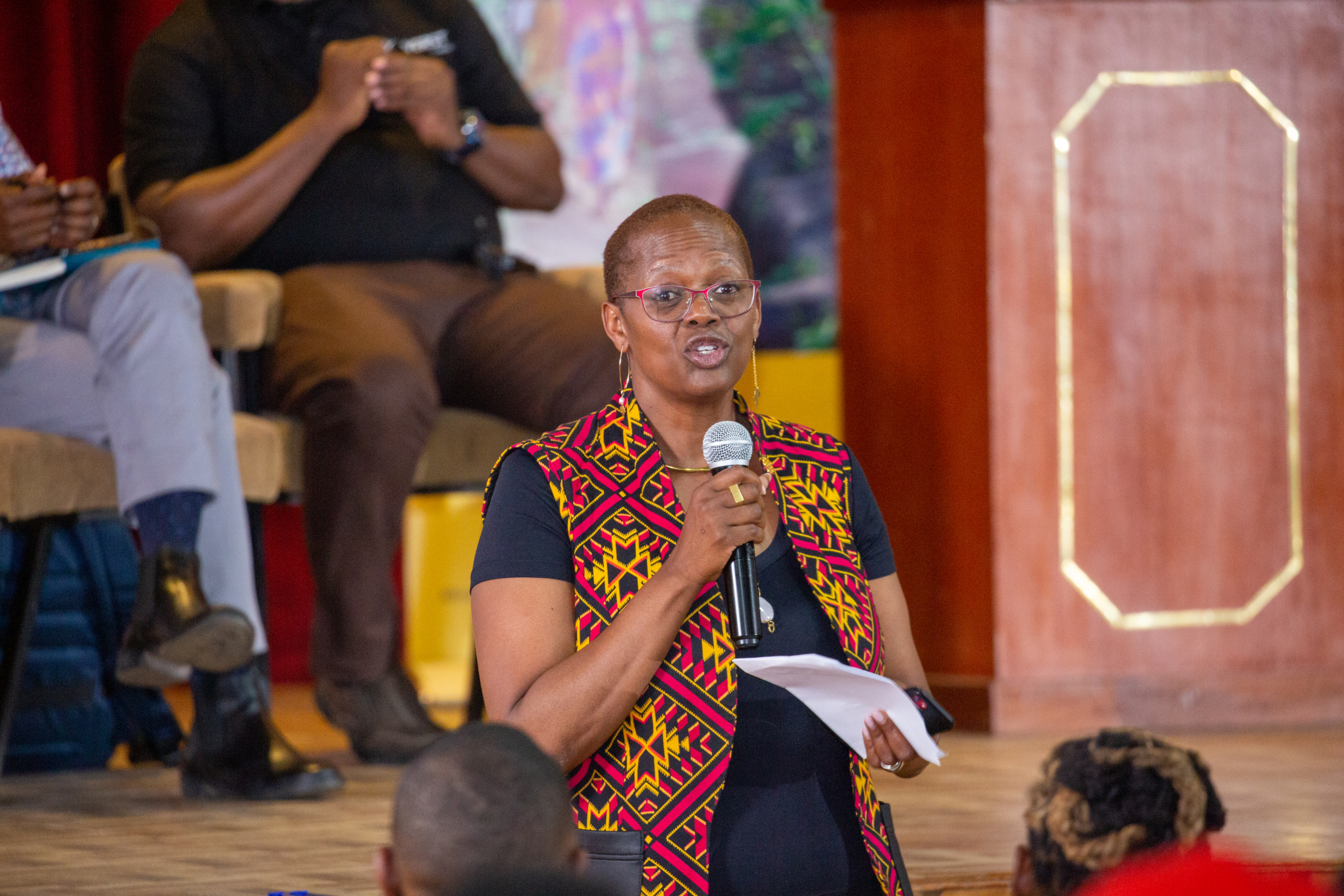
25th March 2024: In the lead-up to the Kenya Carbon Markets Conference, World Resources Institute, Aspen Initiative Africa, SDSN Kenya, CAP-A, and Nairobi Climate Network co-hosted a Carbon Markets Clinic to equip participants with foundational knowledge in the basics of carbon markets and to understand the role of carbon markets in Kenya.
The event aimed to build a basis for dialogue on standards, safeguards, norms, and rights, and broader engagement with decision-makers in the months and years to come. In addition, the event sought to identify how we can scale carbon markets and have an inclusive and tangible impact on local communities.
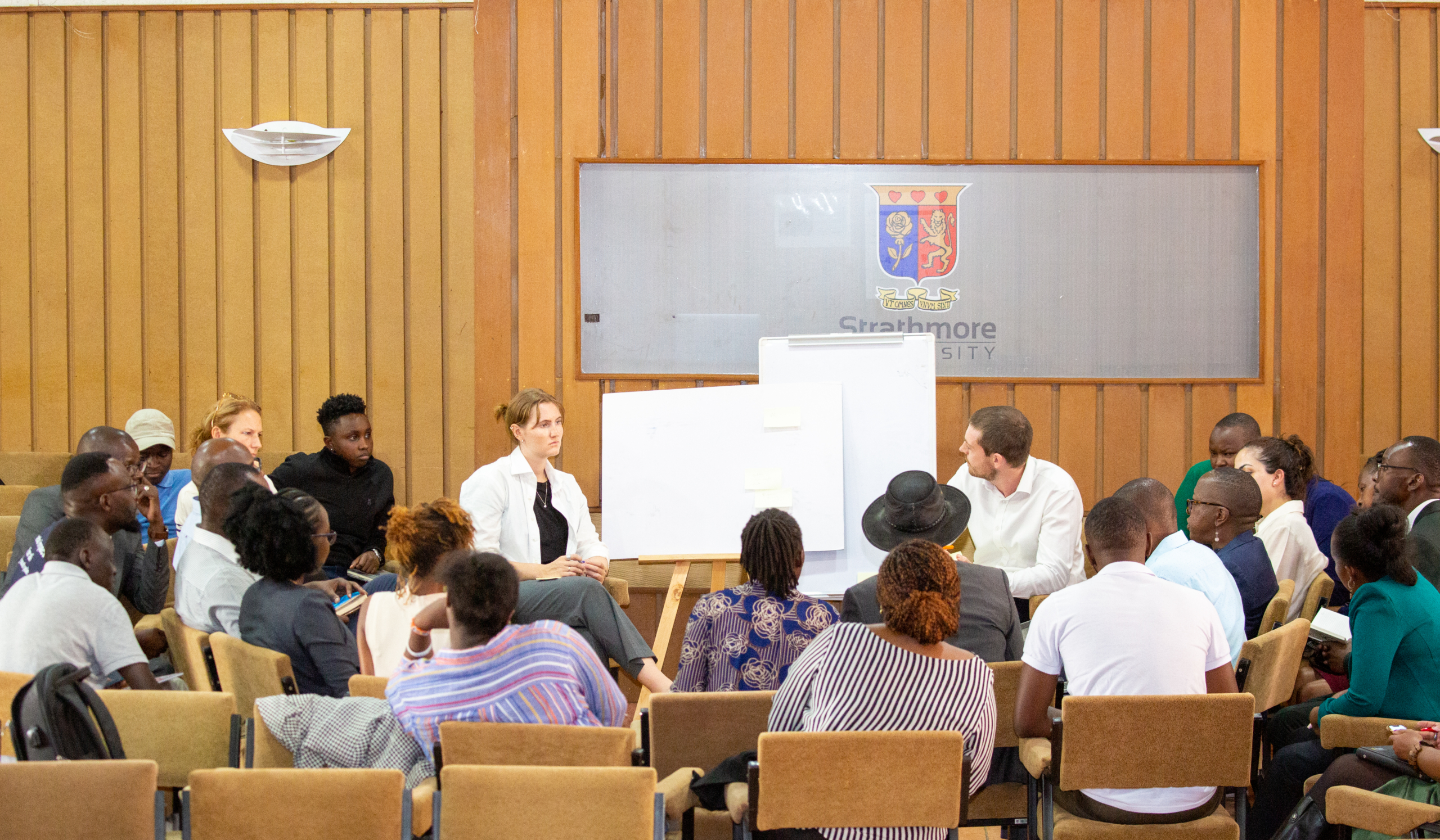
The clinic was followed by an Oxford-style debate on whether “Carbon Markets present a greater opportunity than threat for sustainable development in Kenya.” The debate aimed to provide a platform for critical open discussions and debate around carbon markets, their merits and demerits, and who benefits for Africa’s development and future.
Moderated by Wangui Kaniaru, the debaters were all members of the Nairobi Climate Network and made a strong case for the arguments on either side.
Proponents: Charles Waweru, Aaron Leopold, Murefu Barasa.
🔹 Development Opportunities: Carbon markets have enabled the development of crucial infrastructure such as renewable energy and clean cooking solutions, positively impacting millions of Kenyans. They emphasised the importance of carbon markets as just one external finance mechanism, their role in meeting Kenya’s NDCs, and the potential to export carbon to generate wealth for citizens.
🔹 Global Collaboration: Local actions need global support and finance to tackle the magnitude of the climate crisis. Carbon markets are a mechanism to bring value to local climate actions which have often been undervalued for decades, and are a platform for global collaboration.
🔹 Learning and Improvement: Proponents acknowledged that carbon markets are not without flaws but emphasized the importance of learning and improving methodologies, transparency, and benefit sharing. They encouraged continued engagement to ensure that Kenya is part of the conversation rather than rejecting carbon markets outright.
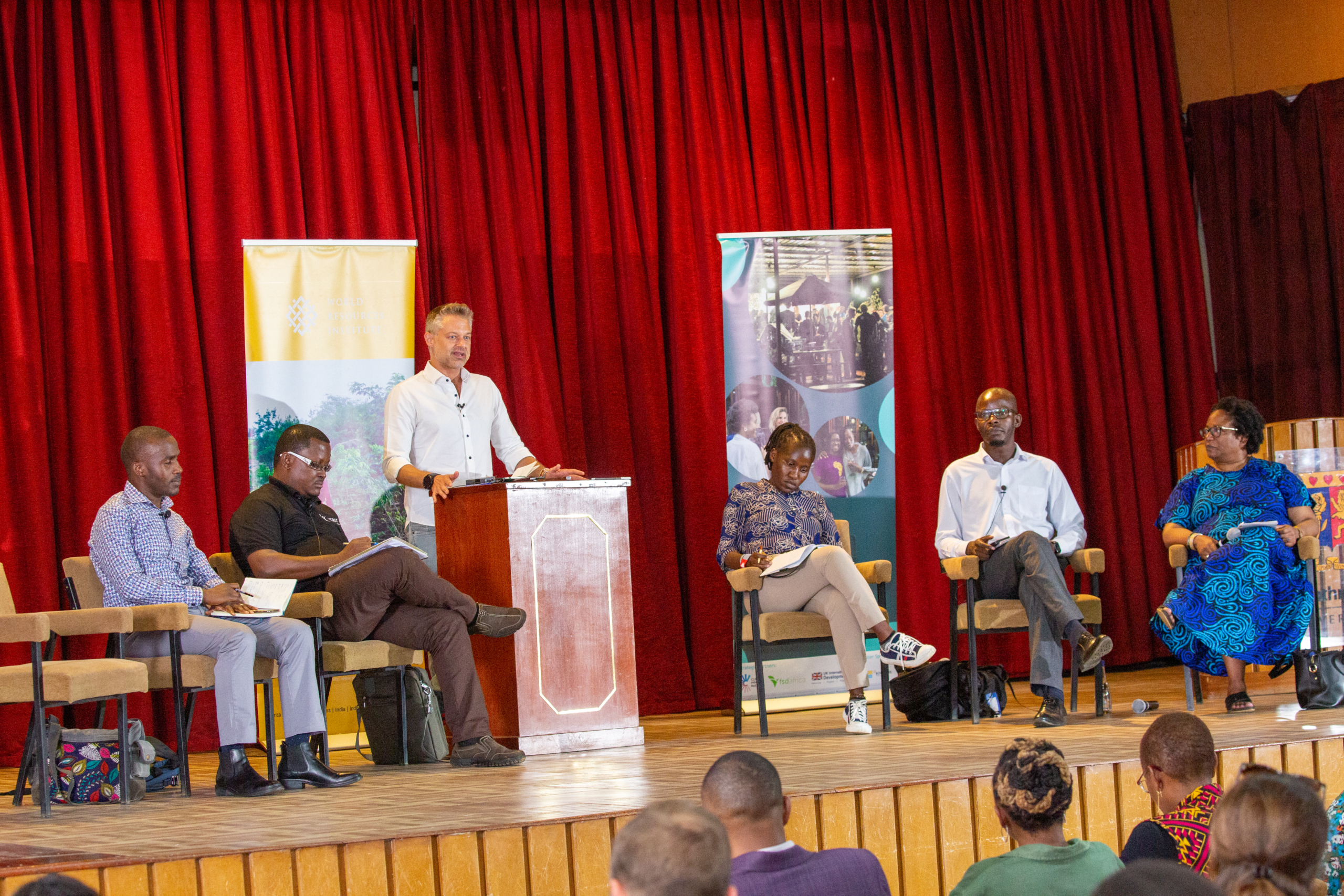
Opponents: Cecilia Wandiga, Desmond-Tutu Owuoth, Irene Asuwa.
🔹 Integrity: Opponents raised several concerns around methodologies, regulation, transparency, and equity. They expressed skepticism about effectiveness, particularly in relation to nature-based solutions and the ability of technology to effectively measure carbon mitigation or removal in land-based projects.
🔹 Community Impact: Opponents highlighted concerns about the impact of carbon markets on local communities and ecosystems. They emphasized the importance of ensuring that benefits from carbon projects trickle down to individuals and are not solely captured by corporations. They argued that carbon markets must be redesigned to fit the African context and ensure fair treatment for local communities.
🔹 Structural Challenges: They raised concerns about historical failures and volatility of the market, neo-colonialism, and corporate greenwashing. They called for exploring alternative approaches to addressing climate change and promoting sustainable development, such as nature-based solutions and decentralised renewable energy systems.
The motion was passed with a majority voting yes. The audience believed that despite challenges, carbon markets offer significant opportunities for sustainable development in Kenya.
Kenya Carbon Markets Conference:
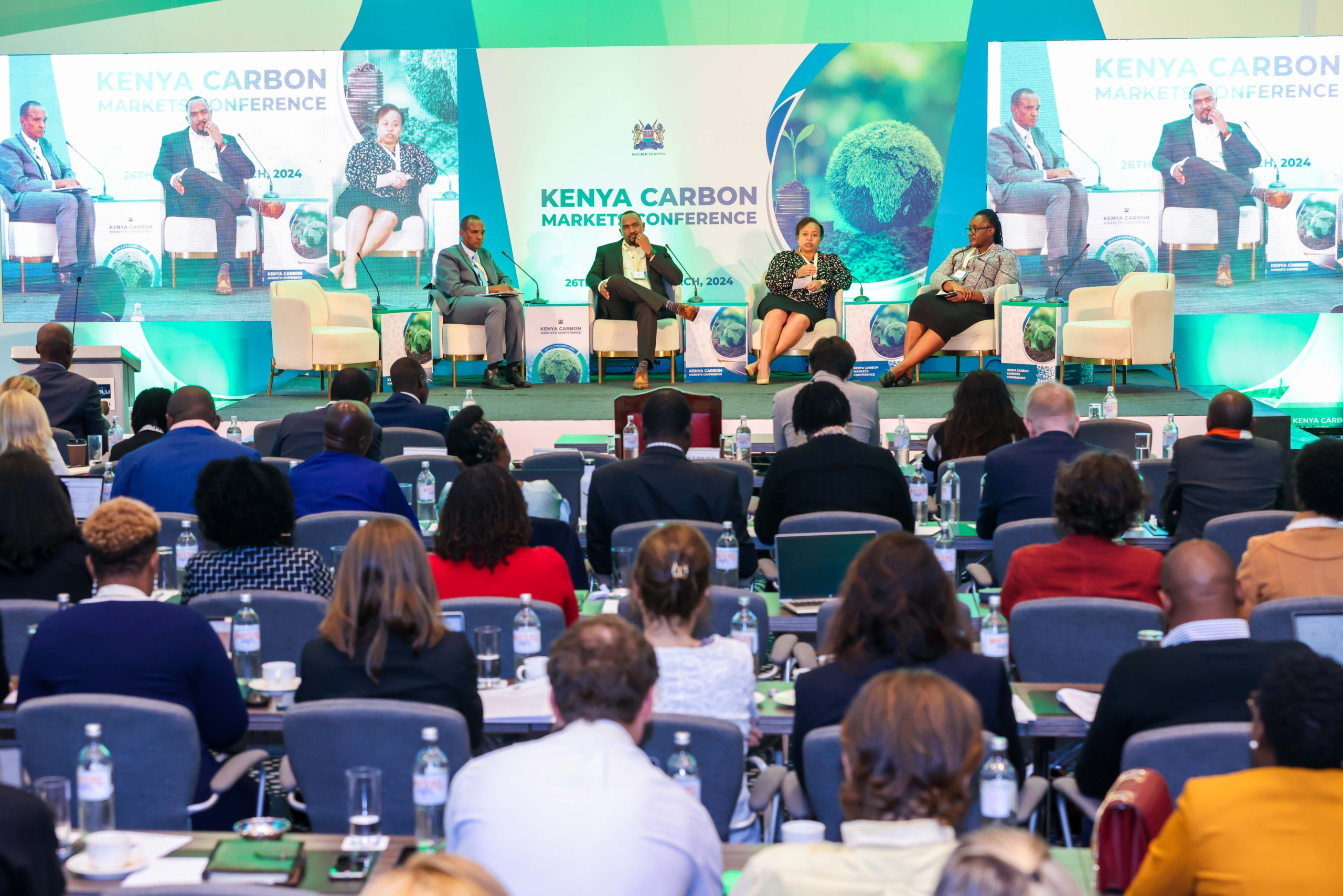
26th – 27th March 2024: Organised by the Office of the President, the Kenya Carbon Markets Conference brought together government officials, policymakers, private sectors, and financial institutions to discuss Kenya’s carbon markets potential. The conference aimed to showcase Kenya’s progress in creating an enabling environment that provides confidence to investors and attracts carbon finance toward the country’s climate-positive growth.
Multiple NCN members were featured on stage sharing the opportunities, challenges, and expectations of high-integrity carbon markets in Kenya:
- Jack Kimani, CEO, CAP-A spoke on navigating Kenya’s carbon markets landscape
- Paul Muthaura, CEO, ACMI spoke on fair and equitable pricing of carbon credits
- Greg Murray, CEO, Koko Networks, Lindsey Umalla, Clean Cooking Alliance, and Kate Wharton, Managing Director and Head of Natural Capital at CrossBoundary, spoke on innovating the carbon finance landscape
- James Mwangi, CEO, Africa Climate Ventures spoke on domestic carbon pricing and CBAM.
- Dorothy Maseke, Africa Lead – Nature Finance & TNFD, FSD Africa, moderated a session on the different innovative finance models and the role local commercial financial institutions can play in supporting private-sector project developers
- Martin Freimuller, CEO, Octavia, and Corey Patisson, CEO Cella, spoke on green industrialization
- Olivia Adhiambo Ojwado, Climate Policy Director – Africa, Wildlife Works, spoke on nature-based solutions and the role of communities
- Hannah Evans, Executive Director, Lamu Environment Foundation, spoke on opportunities for carbon Markets in the blue economy
- Brian Nyangena, CEO, Verst Carbon, spoke on trends in digital MRV and registry infrastructure
NCN Organisation Members Showcase:
- BasiGo and Roam showcased their work in the session on Accelerating E-mobility through Carbon Finance
- BURN Manufacturing and EED Advisory showcased their work in the session on Demystifying Ecooking
- Safi Organics, one of Africa Climate Ventures’ portfolio companies, showcased their work in the session on Biochar
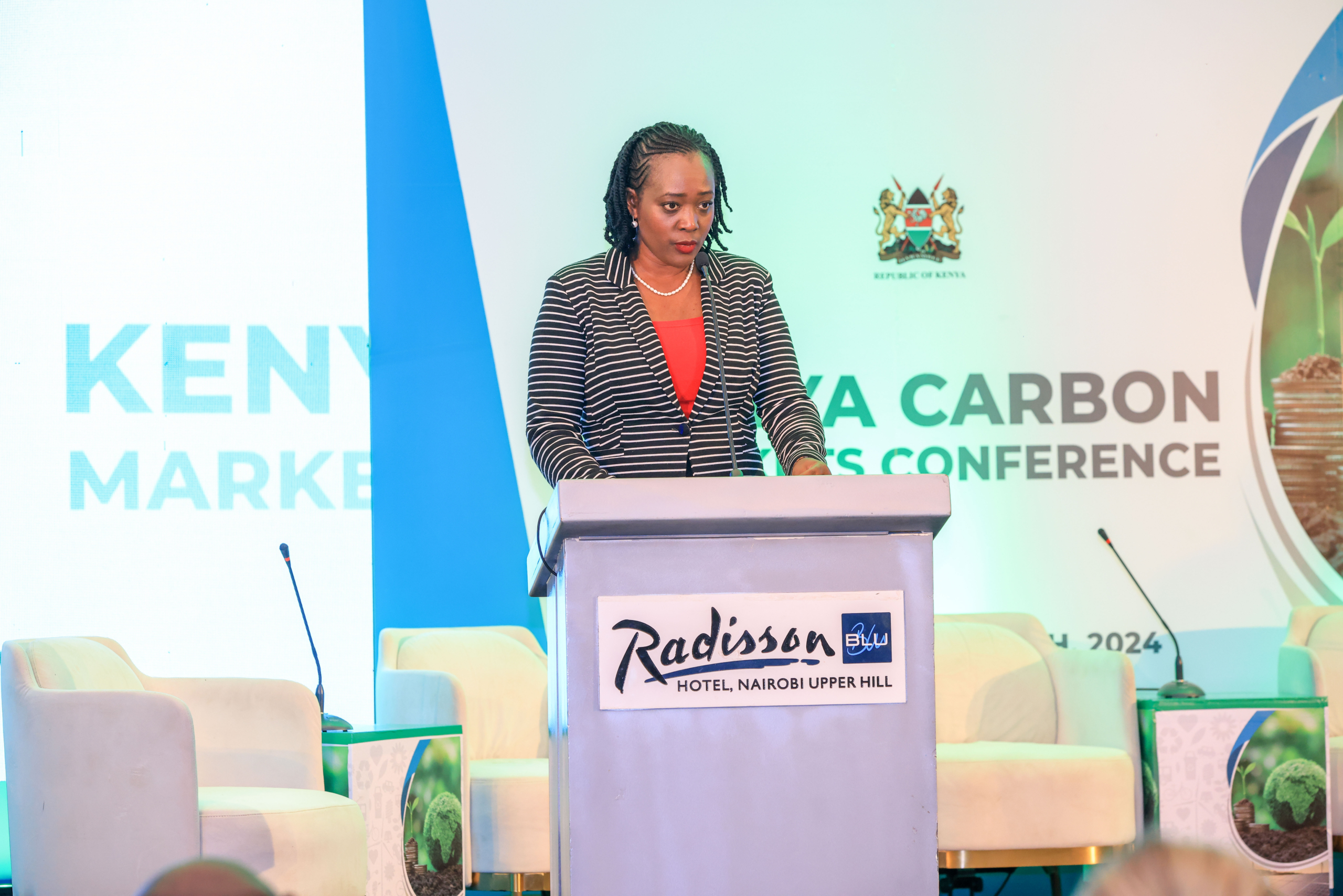
The sessions facilitated discussions on turning carbon market opportunities in priority sectors into real investment. The discussions unpacked the complexities of pricing and building infrastructure to enhance the integrity, transparency, and accounting of carbon markets.
Some key takeaways from our team:
🔹 Government Commitment: The highest levels of government are committed to making Kenya a leader in carbon markets. While new regulations are in the works, Soipan Tuya, C.S. at the Ministry of Environment, emphasised the importance of getting them right before implementation.
🔹 Policy and Incentives: Policymakers need to provide incentives to attract investments, especially in capital-intensive green industries like DACC and hydrogen. They can also support locally made products – such as organic fertilisers – over highly polluting imports to help propel Kenya’s leadership in carbon markets.
🔹 Methodology and Integrity: Evolving methodologies, coupled with African-specific data and local expertise, are essential for building trust and ensuring fair pricing. Faith Temba, Sourcing Manager Africa at Climate Impact Partners, shared that buyers have diverse preferences and we shouldn’t expect a homogenous market; Kenya should aim for premium pricing with high integrity as a differentiating factor.
🔹 Technology and Communities: While technology such as dMRV holds promise, capacity building and community education remain integral. There was a strong focus on the need for education to ensure communities are active participants in the market, and taking lessons from MPESA to make carbon finance simple and accessible to all.
🔹 Ecosystem Collaboration: Building a collaborative ecosystem is crucial for accelerating climate solutions – including with carbon buyers. Juliet Munro, Director of Early Stage Finance at FSD Africa shared her view that having different platforms and ways for actors to connect across the ecosystem is critical – something we at Nairobi Climate Network agree with and are actively creating spaces that foster collaborations.
🔹 Sector Subsidies: Carbon credits can serve as powerful subsidies, making products more competitive and accessible to Kenyan consumers, from mangroves and biochar fertiliser to clean cooking and e-mobility.
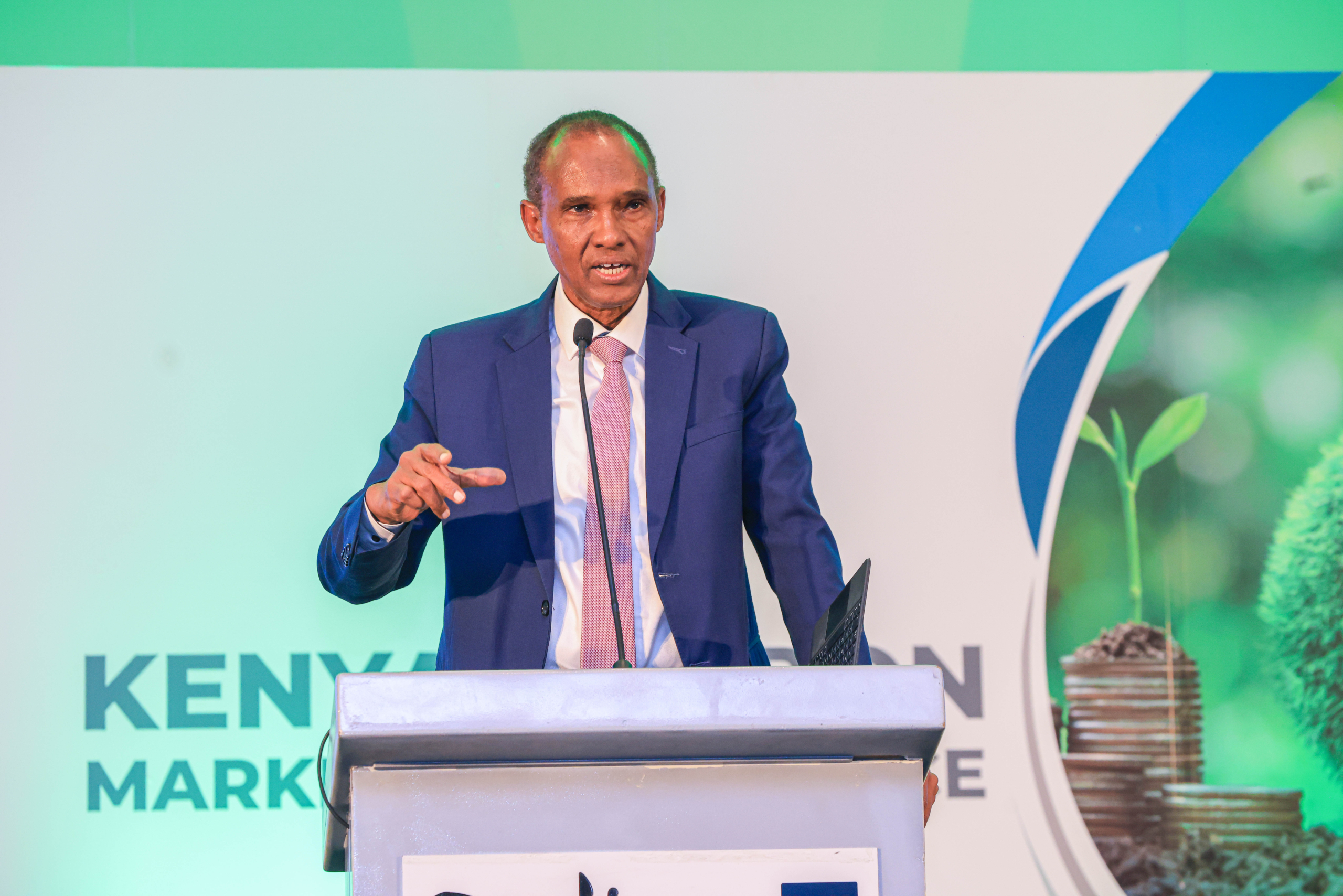
In closing, Special Envoy Ali Mohamed stressed the need to integrate climate action into development, building on the COP28 Africa Green Industrialisation Initiative. He reaffirmed the president’s commitment to establishing robust carbon regulations and making carbon a key export.
He emphasised engaging with global markets and ensuring Kenya’s access through international agreements. He reiterated Kenya’s focus on quality, integrity, transparency, and community engagement to propel Kenya to the forefront of global carbon markets.
On the closing of day 1 of the conference, NCN and Climate Impact Partners co-hosted a networking reception supported by FSD Africa and Bowmans Law. Héloïse Zimmermann, Co-Founder of the Nairobi Climate Network, extended congratulations to the Kenyan government for the strides made in carbon market regulations. She expressed pride in NCN’s contribution to these advancements and announced the upcoming launch of the Carbon Markets Association of Kenya (CAMAK), an initiative by NCN’s carbon markets working group. We’ll share more information on that very soon.
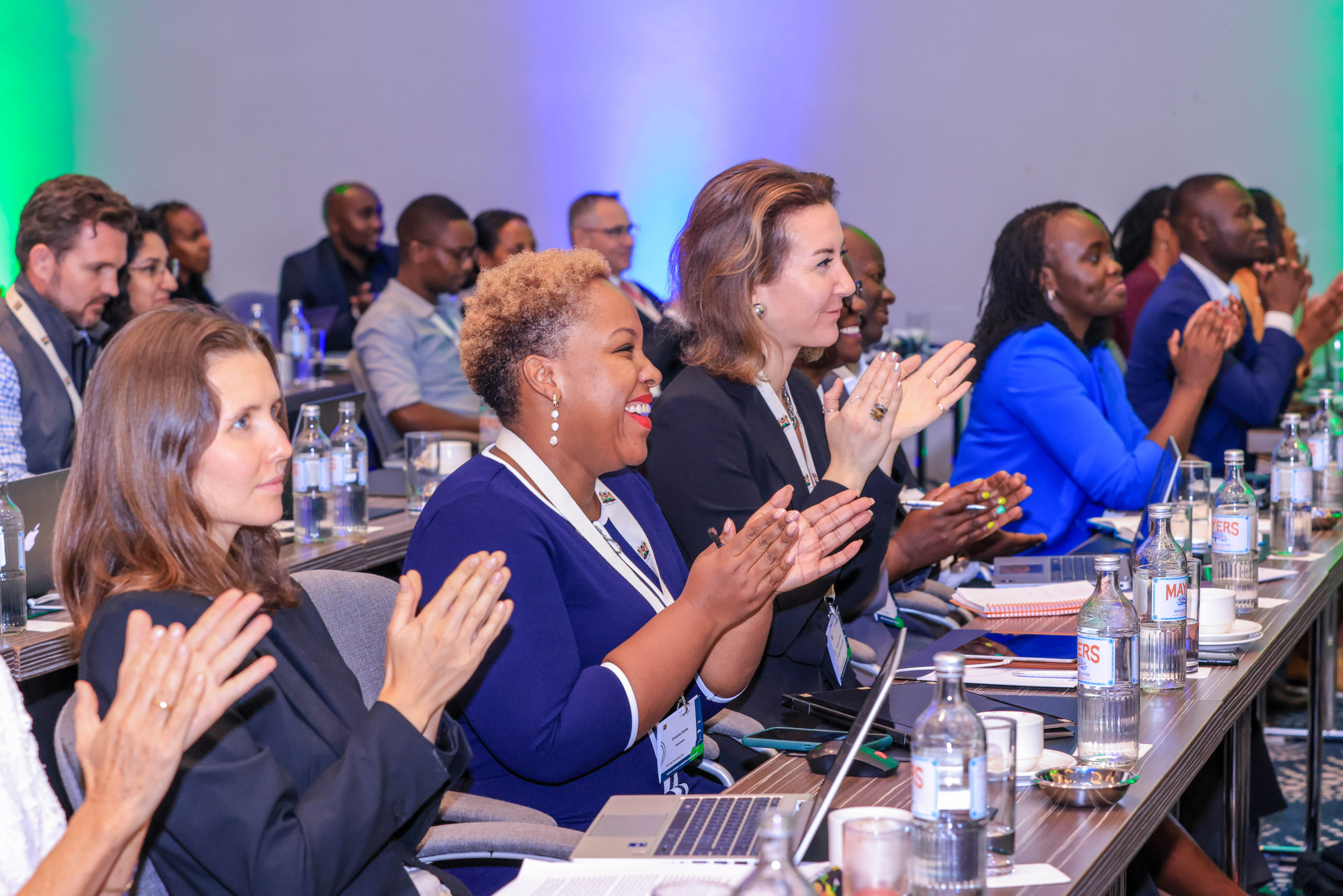
With that, Kenya Carbon Markets Week comes to a close. We eagerly anticipate ongoing collaboration with the government on carbon markets regulations and extend our congratulations to the Office of the President, with a special acknowledgment to Bianca Gichangi, for the success of the Kenya Carbon Markets Conference.
NCN extends gratitude to all members and partners for their support and participation across the week. Special thanks to our event co-hosts Climate Impact Partners, supporting sponsors FSD Africa and Bowmans Law. With thanks to the World Resources Institute for their collaboration.


Join our network
Our network grants you access to a growing pool of invidual and institutional events, resources, opportunities, and in-person connections.